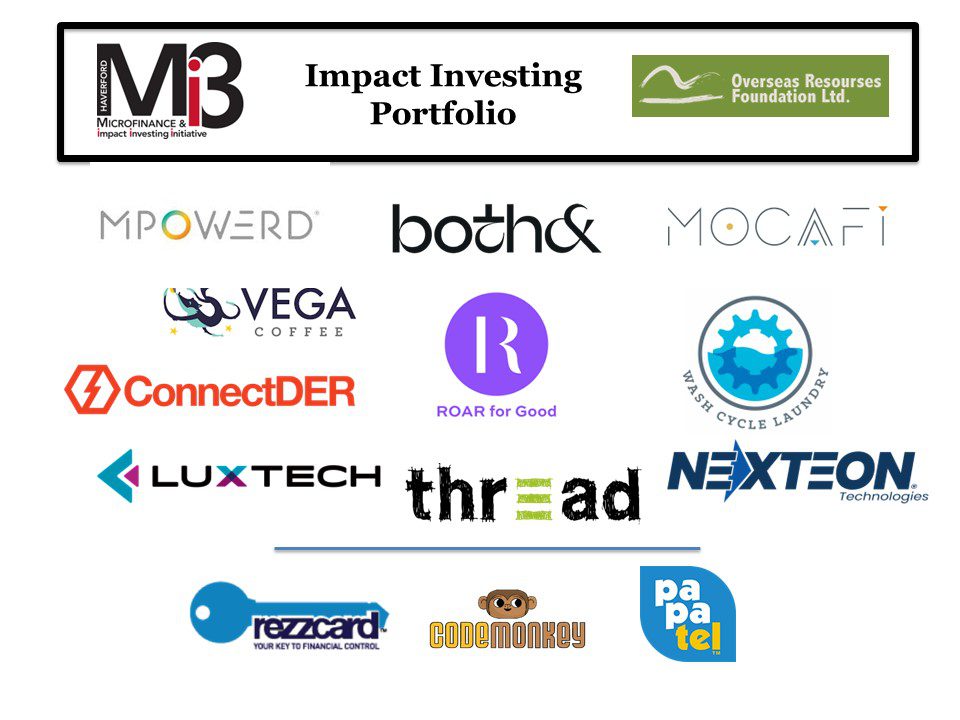From the Classroom to the Field
Since 2013, the Haverford Microfinance and Impact Investing Initiative (Mi3) has been involved in a unique collaboration to engage undergraduate students directly in the process of impact investing. Impact investing seeks to generate not only a financial return, but also a positive social and/or environmental benefit — a double or even triple bottom line. The centerpiece of the collaboration is an experiential learning course taught by Professor Shannon Mudd, Director of Haverford Mi3 and a faculty member of the economics department.
With intro Econ the only prerequisite, the course attracts students from across the College who are interested in how business and capital can be harnessed to address social and environmental issues. At the end of the semester students can choose to deploy capital into one or two early stage equity investments in social enterprises.
Partnerships with ORFl and Investors Circle
(formerly part of SVC and now part of ASBN, the American Sustainable Business Network)
The collaboration’s success is due to strategic partnerships among Haverford Mi3, the Overseas Resources Foundation Limited (ORFL), and Investors’ Circle. ORFL, a private charitable foundation in Hong Kong, is a proponent of education, experiential learning, and aligning values across all activities. The collaboration empowers the students in the project to direct a portion of ORFL’s investments. Investors’ Circle (IC) is a national network of angel investors who focus on early stage equity investments in social enterprises. The local IC chapter, IC Philly, has been a vanguard among local chapters. Its members meet regularly to hear firms pitch, conduct due diligence, close deals, and help monitor and support investees. Students have the opportunity to attend monthly meetings to observe other members questioning entrepreneurs, discussing the impact, opportunities, and risks of social enterprises, and collaborating on the process of investment. Haverford Mi3 invests alongside other IC members, providing a measure of confidence that the potential investments have been thoroughly vetted.
Investment Advisory Committee Vetting
The capstone of the course occurs on the last day of the semester when student teams present their due diligence on live deals (sourced from IC and Mercy Corps Social Venture Fund) to an Investment Advisory Committee (IAC) composed of Haverford alumni and staff. Student groups each present their firm business plan and their assessments, respond to IAC member questions, and make a provisional recommendation. Afterwards, the students and IAC break for dinner and conversation, then reconvene to develop a consensus recommendation for ORFL. For each firm students decide whether to recommend investment of $15,000 or $25,000, set benchmarks which must be met for further consideration, or conclude that the firm does not meet our investment requirements.
PORTFOLIO
Through the collaboration’s efforts, as of 2023 investments total over $263,000 across 11 firms whose focus ranges from clean energy support, FinTech, employee safety from sexual harassment and violence, to fabric and products made from recycled plastic sourced from a transparent and equitable supply chain. Investing in early stage social enterprises is risky and highly illiquid with the average time for the return of investment funds more than 8 years (without the interruption of COVID!). To date, we have had one firm go out of business and one firm return more than 2X the original investment in less than two years.

